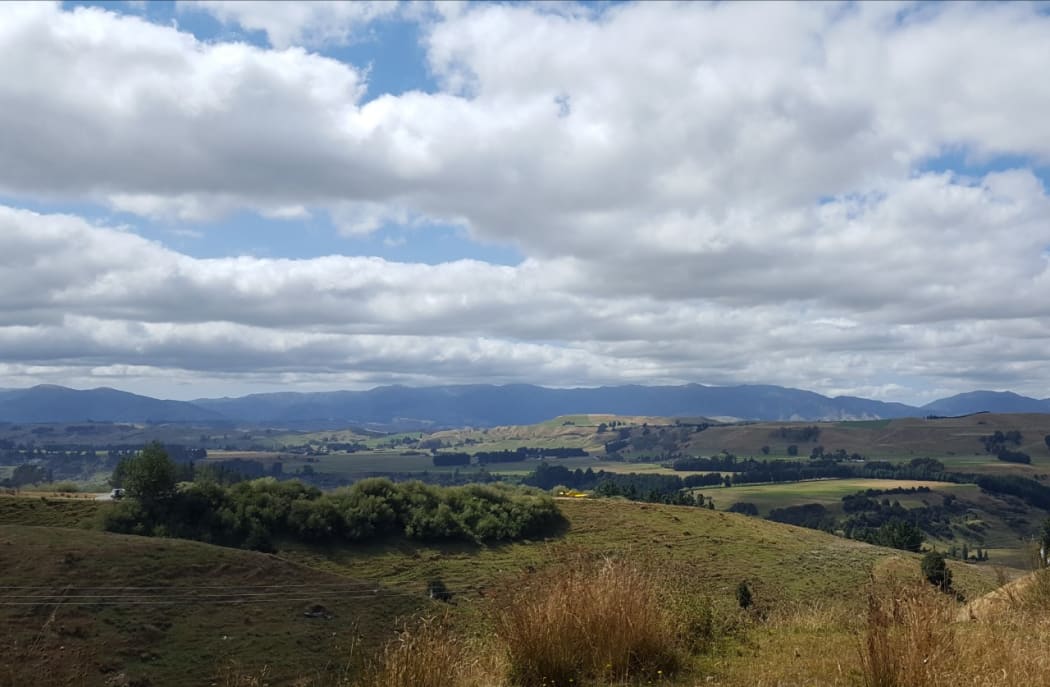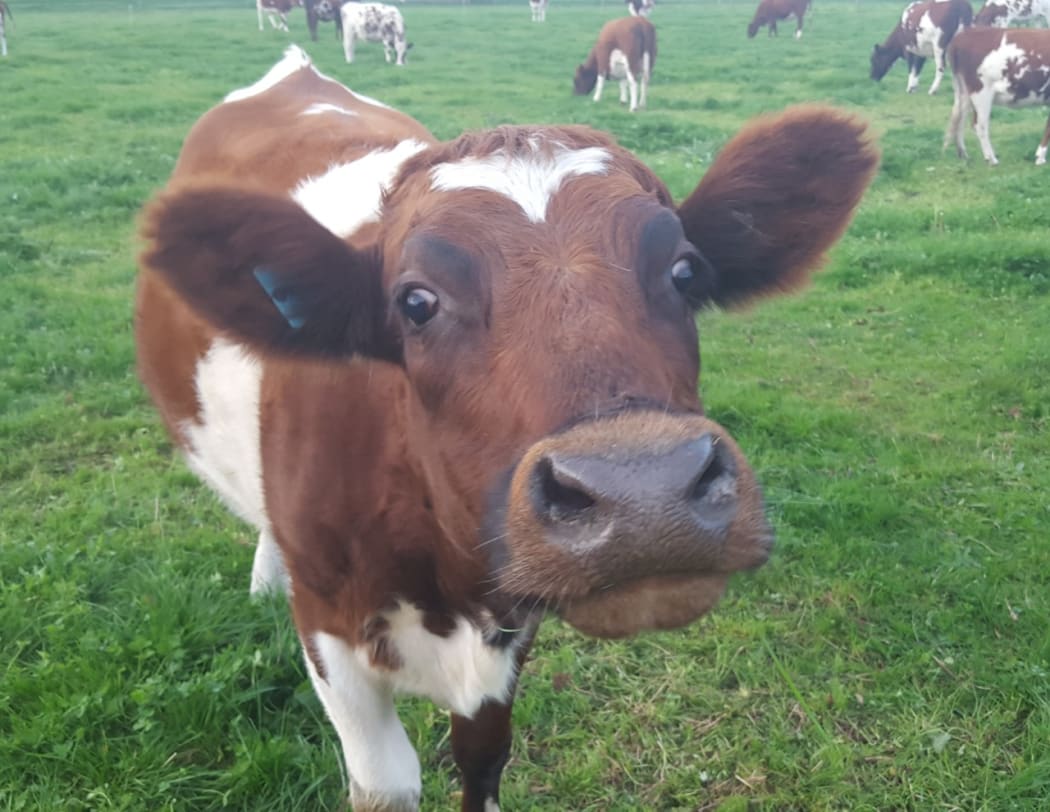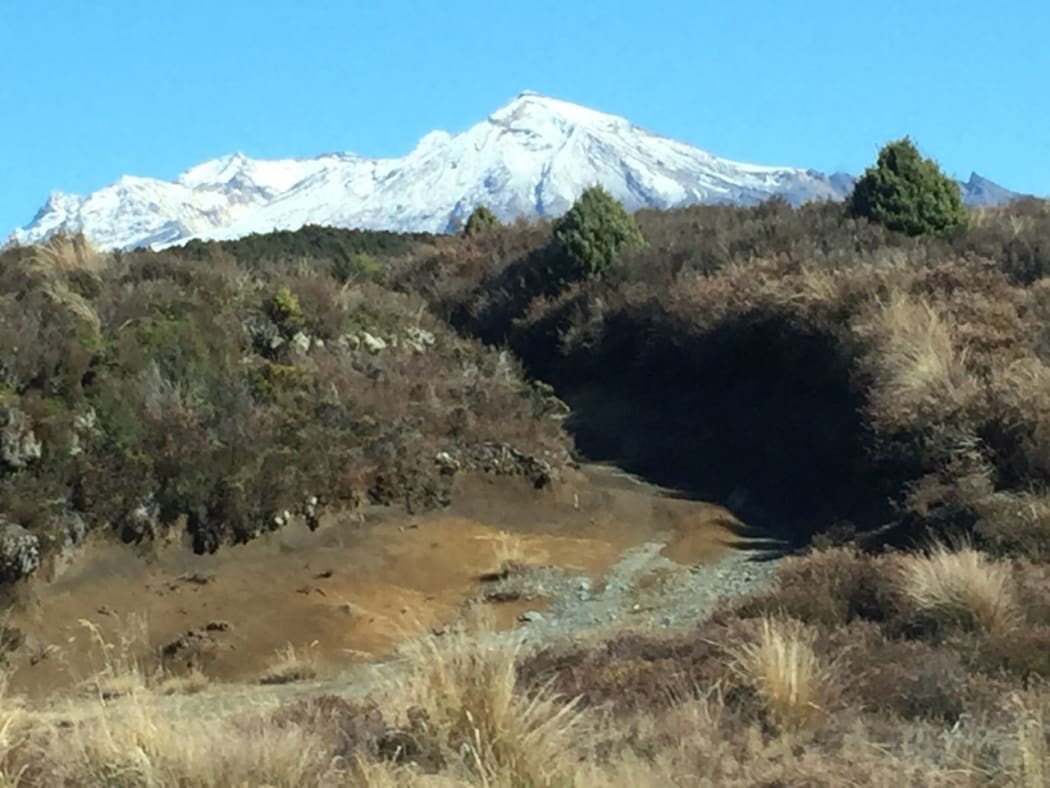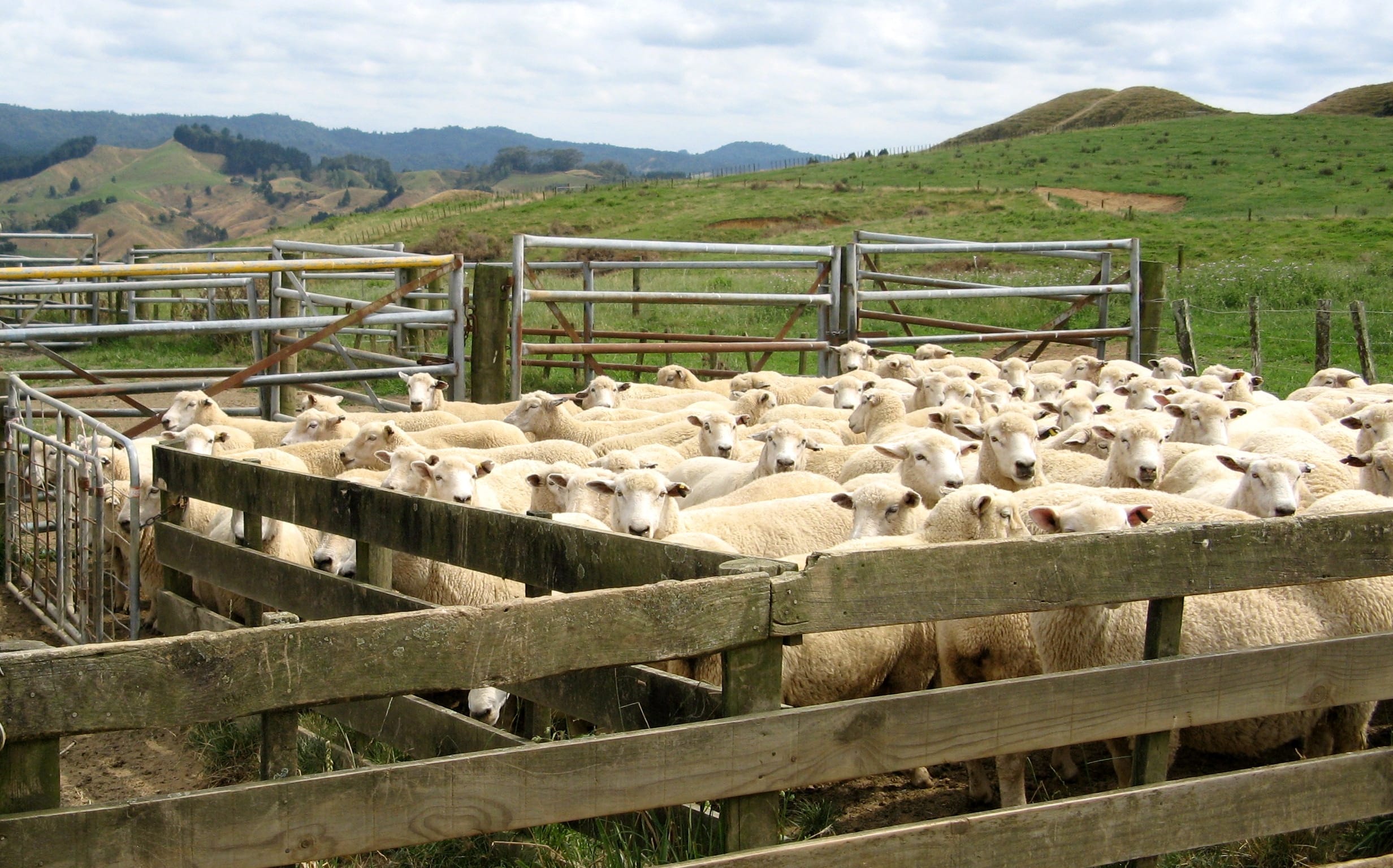
Photo: RNZ/Susan Murray
Boats are lining up in Gisborne to be loaded with logs. In the South Island pasture growth in Marlborough is up 30 to 40 percent on usual for the time of year.
In Northland the kumara harvest is all but wrapped up. Growers have had an unbelievable run of good weather and kumara have been nice and clean going into storage sheds. By variety, 49 percent of the total crop is the traditional red kumara, 46 percent orange, 3.5 gold and 1.5 percent the purple fleshed variety. Our kumara growing contact says the orange kumara was introduced from Louisiana in 1995 and incredibly, now accounts for almost half of all sales. Kumara paddocks are being put back into grass and Northland's dairy farmers, while they'd like rain, are grateful they're not going into winter with already wet soils.
After 10 continuous fine, calm days with above average temperatures around Pukekohe, a front arrived on Friday this week with scattered light rain. Some crops will still need to be irrigated though. The local growers' association has held a soil erosion and silt control workshop to keep growers and contractors up-to-date with recommended ways of managing moving soils and keeping them within property boundaries.

Photo: RNZ/Susan Murray
Waikato and Central Plateau have had some much needed warm rain. There's a good bit of optimism in the dairy sector with the latest rise in global dairy prices and the drop in the exchange rate - people are talking about a $7 milk price next year - but farmers know not to count their chickens,....
Bay of Plenty had drizzle on Friday morning. Things are pretty quiet on kiwifruit orchards - there's a bit of a a hiatus because the gold crop has been harvested and now it's a waiting game until the green fruit is mature enough to be picked - the pickers don't get paid unless they work so it's a very frustrating time for everyone. Avocado growers wish they had product to feed into the market - it's the off season - so people shouldn't be surprised prices are through the roof. Motiti Island in the Bay of Plenty usually picks New Zealand's first avocados - but not until next month.

Photo: Janet Barrett The Garage Studio
Dairy farms in Taranaki have a lot of grass - in fact we're told one farmer near Inglewood is thinking of making silage. The farmer we spoke to says, for April, his farm had 200 percent of its usual monthly rainfall. Lots of people are putting on urea while its still warm enough for the grass to grow.
Gisborne's also been mild and we're told some days have felt like summer. There's also been a splattering of rain. The market's reasonably strong for cattle and really strong for sheep. On Wednesday six boats were parked up at sea waiting to come in and be loaded with logs. The yards beside the port are full of them. The mandarin harvest is starting, growers are on the cusp of orange picking and, towards Wairoa, the last of the squash is being harvested.
Hawkes Bay's apple harvest is virtually finished - the price for granny smiths is still very good so they're being picked for export rather than processing. There's very high demand for New Zealand apples from Asia. On farms, grass is growing pretty well - even the Rangitaiki plains between Napier and Taupo, which are 700 to 750 metres above sea level, have plenty of grass.
Wairarapa had a nice bit of rain on Thursday night and it's unseasonably warm. That's pretty useful for growing grass. Animal health hasn't been plain sailing - the farmer we spoke to says this time last year, which was the season from heaven, his ewes were 8 kilogrammes heavier than they are now - he's looking at worm counts to see if they're partly to blame.
Manawatu and Rangitikei are having reasonably warm weather and there's been a drop or two of rain. A lot of top dressing planes and helicopters are buzzing around spreading nitrogen. Dairy farmers are umm-ing and ahh-ing about when to dry off and sheep farmers are sending the last of the lambs away - they're all trying to build up feed going in to winter.
Across Cook Strait and feijoa harvesting's in full swing in the Nelson/Motueka region. Fruit size is good but quantities are down this year. The picking of gold kiwifruit is coming to an end. Most apple picking's finished and orchards are getting a post-harvest clean up. Some blocks are being ripped up by diggers. The trees are burnt on site and then the ground's fumigated and prepared for planting new varieties.

Photo: supplied
A farmer in Marlborough says he's in the land of milk and honey... but at the same time he admits it's eerily concerning as temperatures are up 6 or 7 degrees above normal and pasture growth's up 30 to 40 percent. It's not surprising that winter feed crops are looking fantastic as soil temperatures are a warm 12 degrees at 10 centimetres. Rams on lower hill country properties have completed their task. Ewes have gone onto on winter rotation and despite them eating all the grass in front of them it's popping up just as quickly behind. In vineyards pruning's about to get underway.
On the West Coast our contact at Rununga says it's been a nice week despite some heavy showers. People are drying cows off and early heifers are coming home from grazing. Most farms have moved down to once a day milking. Winter crops are being measured to work out yields and baleage is being fed out on paddocks where stock are now into winter mode.
Canterbury has had a mostly cloudy, dull yet mild week. The grass is still growing which is a bonus for this time of the year. The announcement that more farms have tested positive for M Bovis has really knocked the store beef market, to the point where many cattle at sales are currently being passed in as there are no buyers. Farmers hope it's a short term issue and things can return to normal soon.
It's been a mild week in South Otago and now that fertiliser's in the ground, pasture growth's taken off. Cattle condition's picked up after the dry summer. The biggest challenge is finding space at the works to get them killed. Ewes have gone to the ram in good order. Our contact says his rams will stay in with the ladies over winter as "they can only get pregnant once!".
A farmer at Waimahaka in Southland says temperatures are 2 to 3 degrees above normal at the moment, and after 20 millimetres of rain, paddocks are healthy and green. There's not too much mud around either which is a bonus. He's already dried off a few cows but the bulk of the dairy herd are due go on holiday on May 20th. Most contract milkers in the region are locked in for next season. The next step up the ladder for them is lower-order share milking.

